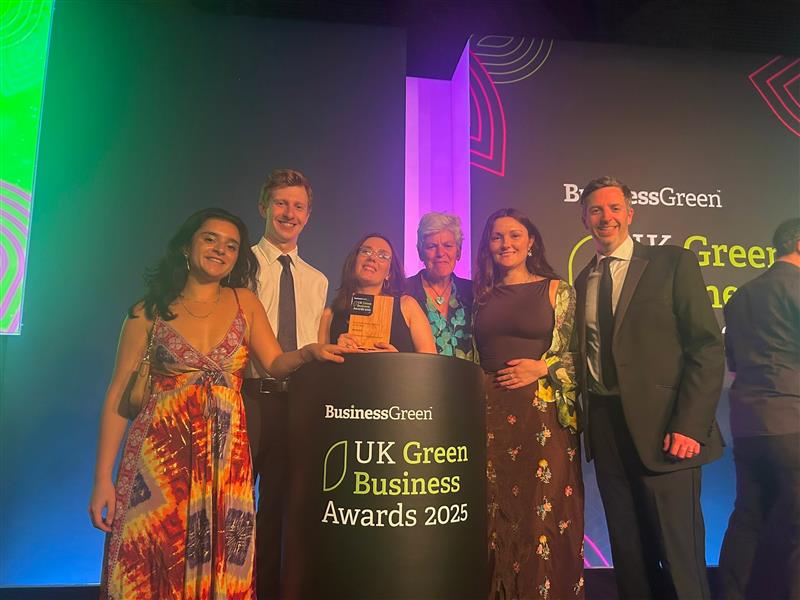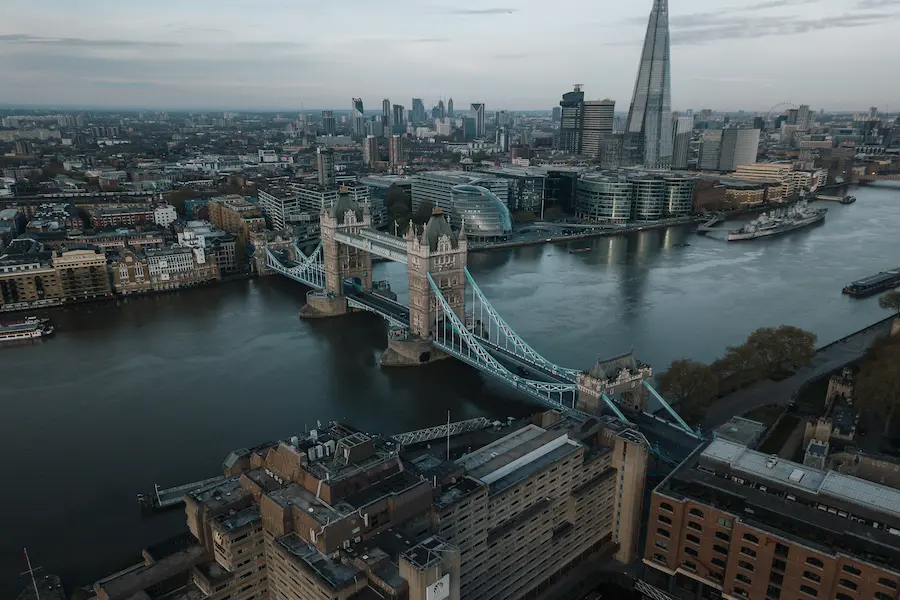Election Watch – Channel 4 Climate Debate: what did we learn?

From green budgets to clean energy promises, each week we’re publishing the top climate stories you need to know about ahead of the UK general election. A majority of people in the UK say the climate crisis will influence how they vote this month, with younger voters feeling particularly strongly about the issue, according to a ground-breaking opinion poll from ClientEarth, supported by Greenhouse. Last Thursday saw the first ever election debate focused solely on climate change, hosted by Channel 4’s Krishnan Guru-Murthy. This week, we’re sharing a summary of the main takeaways from the debate:
Conservatives & Brexit Party absent
- Leaders of the Conservative Party and Brexit Party, Boris Johnson and Nigel Farage, refused to attend the debate. Their podium positions were consequently replaced with ice sculptures, which melted during the course of the programme.
- Cabinet minister Michael Gove attempted to join the programme in Boris Johnson’s place, but Channel 4 producers denied him entry, claiming this was a debate for leaders only. Watch Michael Gove being heckled by UKSCN member Izzy Warren outside the Channel 4 studios.
- Following the refusal to grant Michael Gove access, the Conservative Party have since threatened to review Channel 4’s broadcasting remit, accusing them of unfair bias.
When can we reach net-zero?
- For the five leaders who did turn up – Jeremy Corbyn, Jo Swinson, Nicola Sturgeon, Adam Price, and Sian Berry – a key distinction between the parties’ climate policies was on their target to reach net-zero emissions.
- Sian Berry (Greens) – 2030
- Adam Price (Plaid Cymru) – 2030
- Jeremy Corbyn (Labour) – 2030s
- Nicola Sturgeon (SNP) – 2045
- Jo Swinson (Liberal Democrats) – 2045
- Boris Johnson (Conservatives – not present) – 2050
- Nigel Farage (Brexit Party – not present) – no target
Food & agriculture policy
- Farming is a huge source of carbon emissions, whilst also comprising a crucial part of biodiversity and the natural environment. Here are some of the leaders’ key policies, thoughts and ideas around food and agriculture:
- Sian Berry raised the prospect of a methane tax on meat and dairy products: “We want the industry to reduce the amount of meat they’re producing, to encourage greener, healthier choices, and to make those the cheapest choices for people”
- Nicola Sturgeon called for more energy-efficient farming practices: “We need to think about where our food is sources from. The practices in agriculture and farming have to change, and we should be supporting our farmers to do that”
- Adam Price criticised attacks on farmers: “It’s a myth that the IPCC report was advocating moving away from meat and dairy. Animals fed on grassland make a positive contribution to the environment, as one of our most important stores of carbon”.
- Jeremy Corbyn explained the reasoning behind people’s food choices: “Many people in this country are obese because of the poor-quality food they eat, or hungry because they can’t afford to eat properly”.
Transport policy
- All politicians appear to agree that our domestic transport network needs updating, but there are disagreements on how to do that in line with climate targets. Party leaders discussed the role of flying, trains and local bus networks:
- Jo Swinson called for a frequent flyer tax: “We would start with an international frequent flyer tax for those taking more than three return long-haul flights a year. At the moment we do not have good enough transport infrastructure – we have a Victorian railway system in the 21st century.”
- Nicola Sturgeon suggests focussing on local transport networks: “We’re investing £500 million in local bus infrastructure, and seeking to improve railway services. Sometimes flights are necessary, but we’ve set a target to decarbonise all flights within Scotland by 2040.”
- Jeremy Corbyn calls for greater rail investment: “We would set expansion of any airport against tests on air and noise pollution, and climate change targets. If we are to reduce flying, we must invest in our rail network.”
- Sian Berry criticises other parties over Heathrow expansion: “Just over a year ago, more than half of Labour MPs voted for a Heathrow third runway, and the SNP abstained. You cannot abstain on climate change. The question now is how can we share out the amount of flight we can take more fairly, which means targeting the 15% of people who take 70% of all flights.”
Energy policy
- The UK has great potential to develop renewable sources of energy, and help move towards carbon neutrality. Here were some suggestions on what to prioritise, including retrofitting homes and ending reliance on fossil fuels:
- Jo Swinson proposes a programme of home insulation: “We must retrofit homes to insulate them properly. For low-income households, this can help cut energy bills. We must have a target for new-build homes to be carbon-neutral.”
- Sian Berry calls for investment in already-existing homes: “More than half of UK emissions are from homes and buildings, because each successive government has neglected already-existing homes. Of our £100 billion a year going into a Green New Deal, £38 billion must go into homes.”
- Nicola Sturgeon seeks to move away from oil, but not immediately: “Scotland already produces 75% of electricity from renewable sources. But we’re in the transition away from fossil fuels and that transition has to accelerate. If we were to stop oil production tomorrow, we would be more reliant on imports, so that transition must be sensible.”
- Adam Price wants Wales to be at the forefront of renewable energy: “We must power up the grid and our renewable revolution. Wales has great renewable energy resources; we were the cradle of the last industrial revolution and we can be at the start of this next energy revolution as well.”
Leader’s quotes (read more: the i)
- Sian Berry: “Tonight, every leader on this stage will agree with me. They will all work very hard to sound a bit like the Green Party.”
- Jeremy Corbyn: “The climate movement has changed our politics forever, and Labour has listened. Labour is on your side and on the side of the environment.”
- Adam Price: “As a new father the climate crisis feels personal now. What I want to do is combine hope with urgency.”
- Nicola Sturgeon: “Tackling the global climate emergency is a moral obligation. It is a big challenge but one that we all must meet.”
- Jo Swinson: “The climate crisis is even more important than Brexit, but Brexit a climate crime. It is morally wrong to leave our seat at the table and give up our influence to create the change we need across the world.”
Next week will be the final election watch round-up before the election itself – get ready!!
Greenhouse PR works with organisations and leaders who are pioneering climate action. Whether it’s food, fashion, finance or farming, if you’ve got a great story and need our help to tell it, get in touch with the Greenhouse team on 0117 214 1250 or email info@greenhousepr.co.uk.


